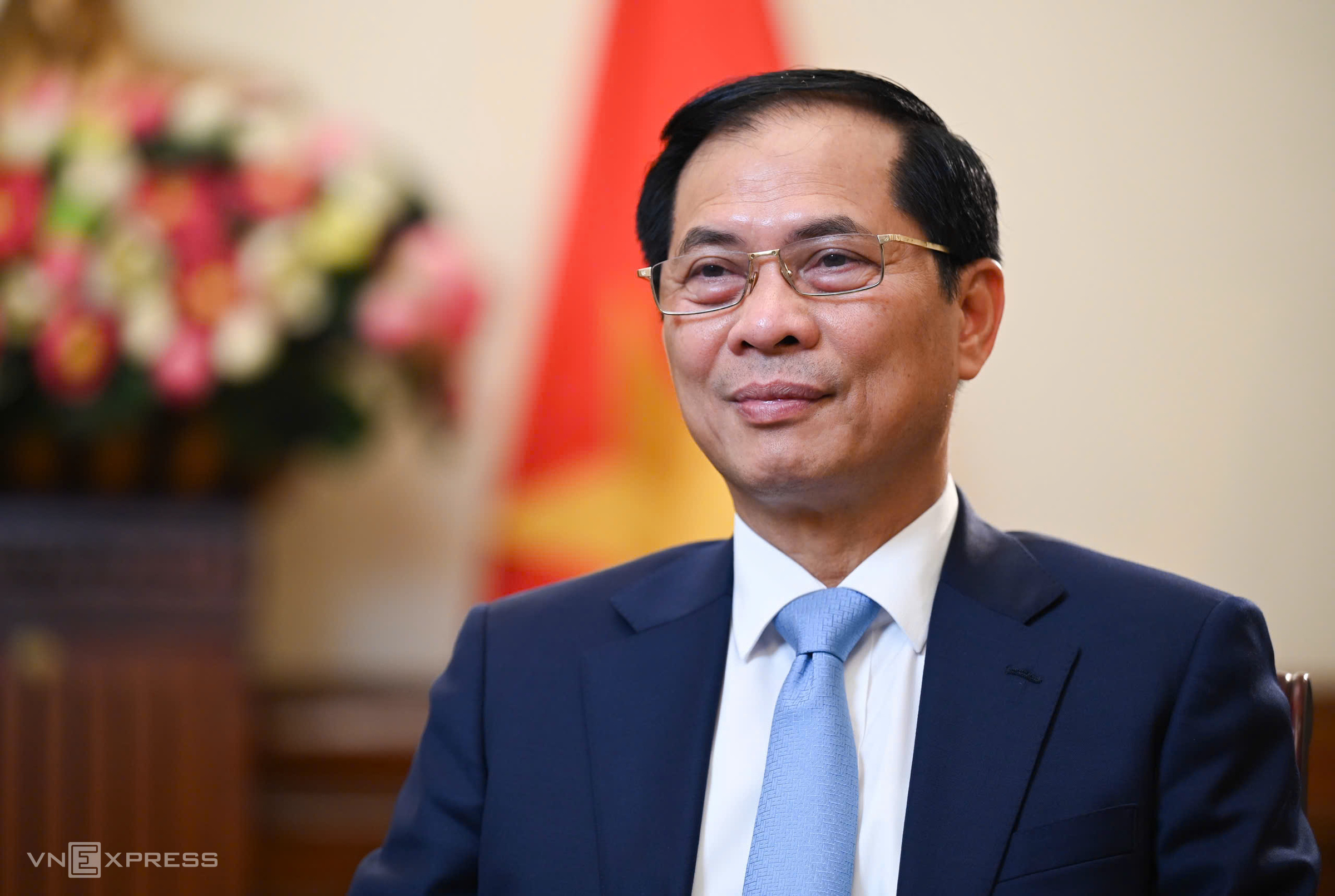Vietnamese diplomacy has significantly contributed to national development and defense, with economic diplomacy playing an increasingly important role in creating a favorable environment for socio-economic progress, said Deputy Prime Minister and Foreign Minister Bui Thanh Son on the 80th anniversary of the establishment of Vietnam's diplomatic service.
"Economic diplomacy is not just a key task but also a crucial driver of Vietnam's sustainable development and comprehensive integration," he emphasized.
According to the deputy prime minister, Vietnam has implemented economic diplomacy synchronously, closely linking it with political, defense, security, and cultural diplomacy, creating a unified front that effectively serves the cause of renovation and international integration. The notable achievements in economic diplomacy in recent years demonstrate the dynamism and effectiveness of Vietnam's foreign policies.
To date, Vietnam has established economic and trade relations with more than 230 countries and territories, signed and implemented 17 Free Trade Agreements (FTAs), including many new-generation agreements, and is promoting negotiations with other partners. Vietnam has risen to the group of 32 countries with the largest GDP in the world and is in the top 20 in terms of trade and foreign investment attraction.
 |
Deputy Prime Minister and Foreign Minister Bui Thanh Son. Photo: Giang Huy |
Deputy Prime Minister and Foreign Minister Bui Thanh Son. Photo: Giang Huy
In the context of complex global changes, Deputy Prime Minister Bui Thanh Son affirmed that the diplomatic sector will continue to maximize benefits from trade agreements, explore new sources of investment and finance, and translate newly upgraded relationship frameworks into specific economic cooperation programs and projects.
Vietnamese diplomacy will promote the development of new economic growth drivers such as science and technology, digital transformation, green economy, and circular economy. At the same time, economic diplomacy will actively respond to trends in energy transition, high technology, and artificial intelligence, creating opportunities for cooperation with global innovation centers.
The deputy prime minister also emphasized that economic diplomacy will continue to closely coordinate with ministries, sectors, localities, and businesses in removing difficulties, attracting investment, promoting the development of economic cooperation programs, and facilitating national economic growth.
He stated that the upcoming period is crucial for successfully achieving development goals by 2030, with a vision to 2045, ushering the country into a new era.
After nearly 40 years of Doi Moi (economic renovation), Vietnam has achieved great and historic accomplishments. With the country's new position and strength, Vietnam's diplomatic sector is expected to further enhance its role, contributing to the country's development in the new era. "This requires diplomacy to constantly innovate and elevate both in thinking and action," the deputy prime minister said.
He suggested that diplomacy should promote its pioneering, crucial, and regular role in creating and consolidating a favorable foreign affairs landscape, realizing the three goals of foreign affairs: security, development, and enhancing the country's position.
Through economic diplomacy and science and technology diplomacy, foreign affairs play a role in paving the way, seizing opportunities, resolving challenges, and creating new development momentum for the country, effectively combining internal and external forces.
Diplomacy also needs to constantly enhance Vietnam's contribution to peace, cooperation, development, and progress of humanity. Diplomacy also needs to promote the nation's "soft power," enhancing Vietnam's image and position in the international arena, commensurate with its historical and cultural stature, and its political and economic standing.
The deputy prime minister proposed building a comprehensive, modern, and professional Vietnamese diplomacy that meets the requirements of the new era, being on par with the region and reaching out to the world.
Looking back on the 80-year journey of the diplomatic sector, the deputy prime minister outlined the lessons learned, first and foremost being the lesson about ensuring the highest national and people's interests above all else.
Vietnamese diplomacy has also combined internal and external resources, national strength with the strength of the times, while remaining steadfast in principles but flexible in strategies according to the motto "using the unchanging to respond to the myriad changes."
He also highlighted the value of unity and consensus, flexibly applying the "five knows" (knowing oneself, knowing others, knowing the situation, knowing when to stop, and knowing how to change) in diplomacy.
In the past 80 years, from a besieged and isolated country, Vietnam now has diplomatic relations with 194 countries, establishing a network of strategic and comprehensive partnerships with 38 countries, including all permanent members of the UN Security Council, G7 countries, most G20 countries, and is an active member of more than 70 international organizations.
"Vietnamese diplomacy will continue to implement the foreign policy of independence, self-reliance, multilateralization, diversification, active and proactive international integration, upholding multilateralism, respecting international law, and actively contributing to a peaceful, stable, and developing environment in the region and globally," the deputy prime minister stressed.
Ngoc Anh












